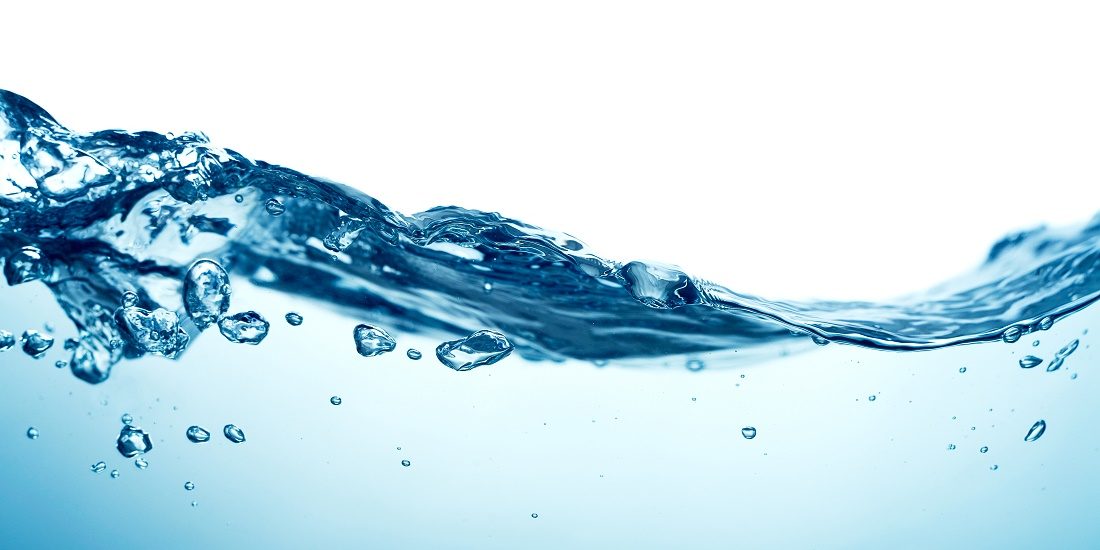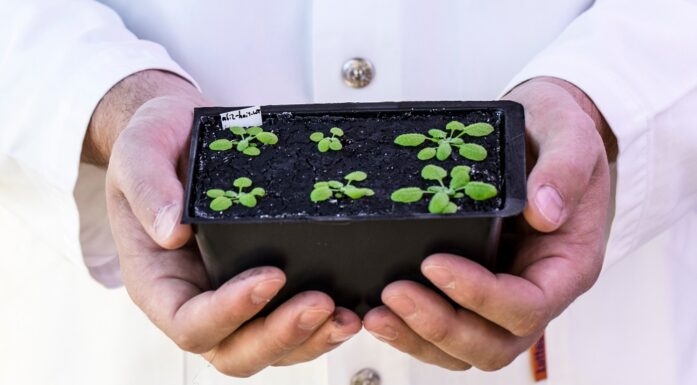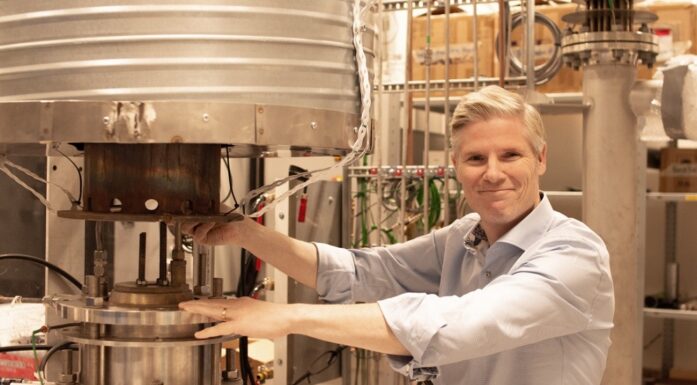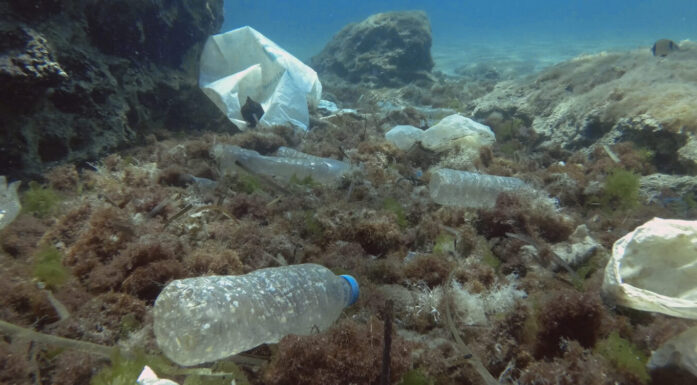Two prestigious awards for research on interfaces
Two international professional organizations recognize PhD research that could improve everything from weather forecasts to the prediction of volcanic eruptions.
Øivind Wilhelmsen currently works as a Professor II (part-time professor) at the Department of Energy and Process Engineering at the Norwegian University of Science and Technology (NTNU).
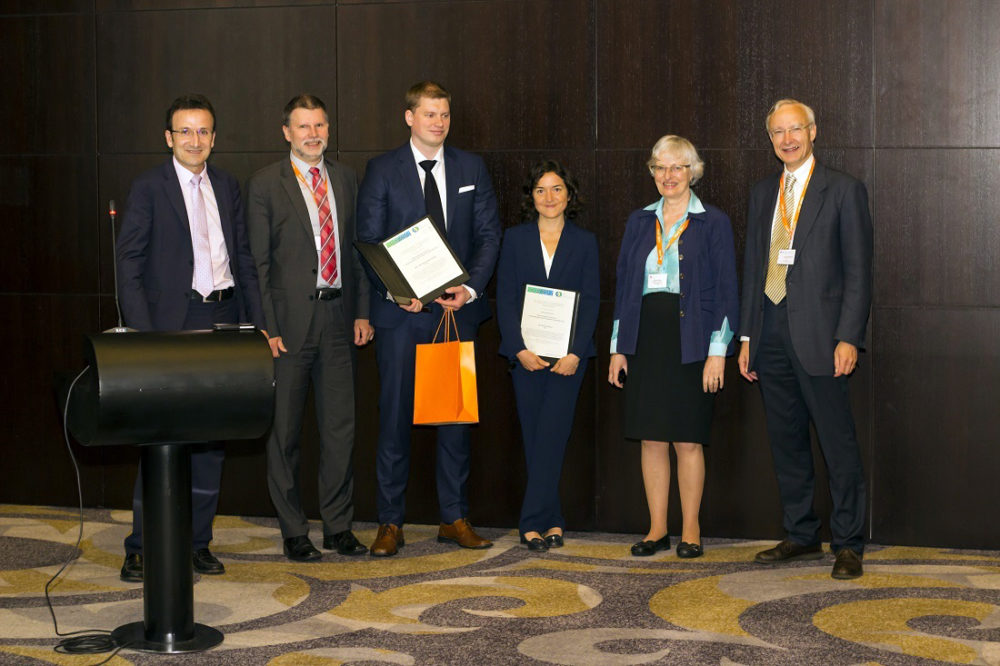
From left, Jean-Noël Jaubert, Ralf Dohrn, Øivind Wilhelmsen,Silvia Lasala, Signe Kjelstrup and Jean-Charles de Hemptinne at the European Federation of Chemical Engineering awards.
He also works as a research scientist at SINTEF Energy Research.
Wilhelmsen completed his PhD thesis in 2015, and his work quickly received attention. Last year, his dissertation was recognized as the best PhD thesis in NTNU’s Faculty of Natural Sciences. His dissertation has now been recognized with two international awards after tough competition with researchers from across the globe.
The first award came from the European research community on equilibrium thermodynamics, while the second was awarded by researchers in nonequilibrium thermodynamics who work on transport processes in fluid systems. Wilhelmsen’s dissertation qualified for both awards, and it is the first time someone has received both awards for the same body of work.
Nanolevel processes
Much of Wilhelmsen’s research concerns nanolevel processes. His thesis involved fundamental research on understanding the interfacial region between gases and liquids, a field that has a great deal of impact on a wide range of topics from weather forecasts and climate models to how volcanoes erupt or DNA replicates. https://norwegianscitechnews.com/2016/05/understanding-tiny-droplets-may-make-for-better-weather-forecasts/
Wilhelmsen’s work broke ground in several scientific areas, such as how heat and mass transport across nanoparticle interfaces depend on their shapes. You can read more about that here: https://norwegianscitechnews.com/2015/04/big-discoveries-about-teeny-tiny-particles-2/
The Awards
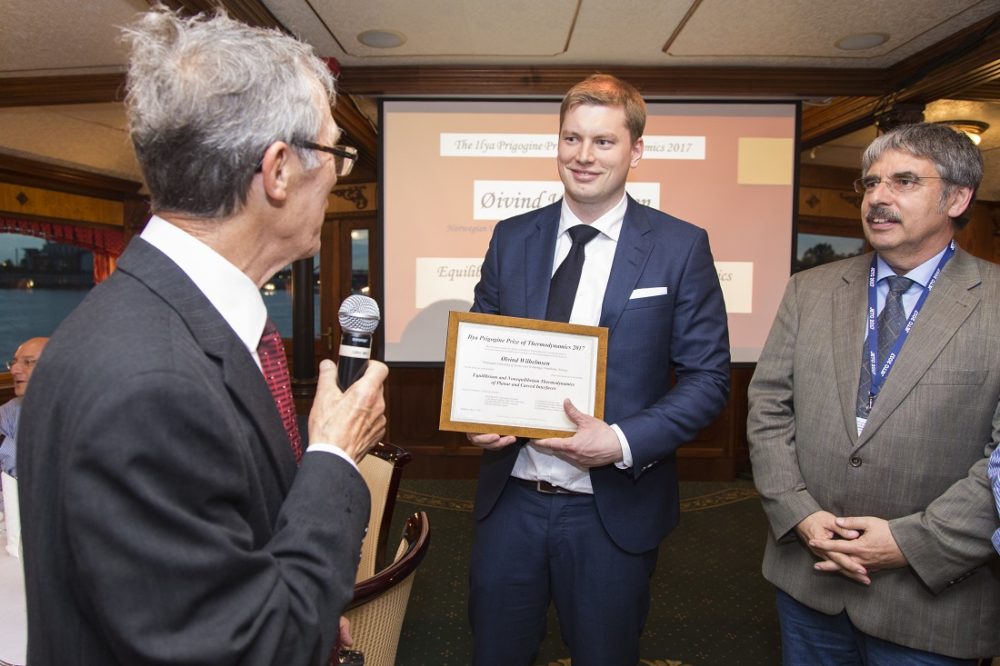
This year’s Prigogine Prize was awarded by the European Centre for Advanced Studies in Thermodynamics at the Joint European Thermodynamic Conference in Budapest. From left, Daniel Tondeur, Øivind Wilhelmsen and Karl Heinz Hoffmann.
The European Federation of Chemical Engineering’s (EFCE) Working Party on Thermodynamics and Transport awarded Wilhelmsen its 2017 Excellence Award at the European Symposium on Applied Thermodynamics in Bucharest in May. In the press release announcing the award, the Working Party said the judges remarked on “the impressive number of papers in the body of the thesis, 13 in total, all of which were lauded as ‘highly original’.”
Wilhemsen also won the Prigogine Prize from the European Centre for Advanced Studies in Thermodynamics, which was awarded at the Joint European Thermodynamic Conference in Budapest in May.
The importance of teamwork
Professor Signe Kjelstrup and Professor Dick Bedeaux at the Department of Chemistry at NTNU were Wilhelmsen’s PhD supervisors.
Wilhelmsen currently works as a research scientist on gas technology at SINTEF Energy as well as holding a professor II position at NTNU. He is part of a research group called ENERSENSE at NTNU, which works at the nexus of energy storage, sensor technology and energy efficiency.
Wilhelmsen says that strong collaboration with his colleagues is an important reason for his success. “The time where scientists sit alone and conduct research is long gone. Good collaboration is crucial,” he said.
He now works with students and colleagues at NTNU, SINTEF and collaborators in Spain and Germany.
His dissertation is available here.
